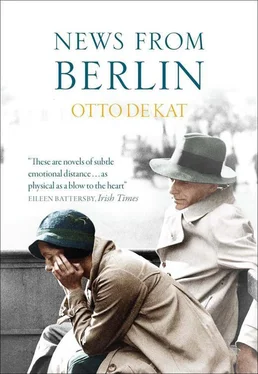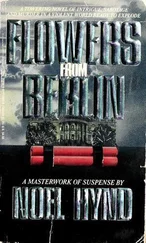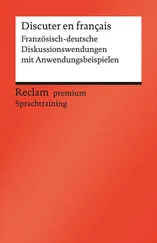Henderson’s study gave Oscar the illusion of home. Book cases on all sides, a walnut desk, a leather armchair, paintings on every available wall space, a small pantry with bottles of drink and glasses. A dark red carpet on the floor, a domed ceiling painted pale yellow, soft lighting on the books, candles, photographs of Stockholm. All was geared to forgiving and forgetting.
“Is your house microphone-free, Henderson?” Howard Smith said brightly, but the undertone was serious.
“You’ll have to ask Horst, it’s up to the Swiss. But no, Howard, we’ve searched the place from top to bottom, no bombs.”
Smith turned to Kelly: “Your aircraft have been keeping us pretty busy lately, David. I’ve lost count of the times I had to go down to the shelter, and I’ve had just about enough if it. Chronic sleep deprivation is the number-one popular ailment. Still, for the past ten days you’ve been behaving yourselves – a question of fuel rationing? If you could keep away a bit longer, it would be much appreciated. I heard a curious story the other day, about so-called shelter parties, organised by people who have developed a liking for air raids. Nightly air raids foster fellowship. You lot are bringing Berliners closer together, literally and figuratively. An interesting side effect. Just think: masses of people huddled together in the middle of the night with snacks and drinks, candlelight and songs, just longing for the sirens to go off. Suffice it to say I am not one of them.”
Kelly gave a short laugh. He was keen to hear what Smith had to say for himself in this company. Oscar knew the journalist from his days in Berlin: an American C.B.S. correspondent, and the sharpest analyst of Nazism around. Through Emma and Carl, Oscar was well aware of how the British air attacks struck terror into the people, and how they dug themselves in, hardening their hearts and losing their sense of humour in brutish survival. He had no wish to back Smith’s claims, for fear of being asked whether his daughter and son-in-law might have more information. Since their last meeting he had not stopped agonising over the news of the German invasion. Nobody in the west doubted that it would happen sooner or later, but until now nothing had transpired.
“When do you think they’ll attack the Soviet Union, Howard?” Kelly did not beat about the bush.
“It was supposed to have taken place back in May, but they’re still dithering, it seems, or perhaps they’ll call the whole thing off, as they did with their plans to invade your island. Stalin refuses to discuss the subject, apparently. The man is completely paranoid, according to our embassy in Moscow. He doesn’t trust anyone or anything, he’s fixated on his pact with Hitler. We warned him some time ago, but aside from the fact that he doesn’t trust us Americans, he seems to think that you English are out to draw him into the war. And you must admit, two war fronts would be to your advantage.”
Kelly gave a cautious nod. “They say the Germans are massing those troops in the east to put pressure on the Russians so they’ll stick to their side of the bargain. After all, Howard, half the German economy hinges on Russian resources. You know as well as I do how badly they need their grain and oil. The supplies crossing the border every day are gigantic.”
“That’s German propaganda for you, David. Don’t you believe it, because the real reason is that they intend to go in and get that oil and grain from where it comes from. If the Russians were to mobilise now, Hitler might yet back off. Or in any case there would be a delay, because until now his trump card has been the surprise attack: he conquered half of Europe as it slept. Which is why it is crucial to know exactly when the Germans are going to invade. But Stalin has had untold numbers of his army officers murdered, and nearly all his generals are either dead or in prison. That man has brought his own army to its knees! They may not even be capable of mobilising, I fear.”
Oscar listened in silence. He had to summon all his willpower not to intervene: David, Howard, listen to me, I know, I know the date, I have the most reliable information of all, the date is set, June 22, Howard, David, Björn, June 22. Three weeks from now.
Who could he take into his confidence, here in Berne? Who would believe him, and why would they? Warn the Russians, but how? He had never met any of their embassy staff, who kept very much to themselves. Telling anyone at all was impossible, it would instantly point the finger at Emma and Carl. Their meeting in Geneva had, without a doubt, been filed in a report. The conversation between him and Emma had not been overheard by the man with the cigarette, of that he was confident, but the fact remained that they had lowered their voices. One more blot on their record. Prinz-Albrecht-Strasse disapproved of whispering.
Smith leaned back expansively in his chair.
“There are more than one hundred and fifty divisions ready and waiting, as I gathered from the Italian military attaché. There is talk of three and a half million, an unimaginable world force. We have seen them leaving en masse from the train stations and pouring from the west through Berlin. I have never seen so many troops as in the past few months. And they weren’t heading for England, Kelly, they were going in the opposite direction. All this has nothing to do with manoeuvres in faraway places beyond the reach of the R.A.F., as suggested by Herr Goebbels at his latest press conference. The Nazis produce a permanent flow of disinformation, they’re very good at that. When a Nazi breathes he lies. And the Russians pretend everything is fine, they just keep harping on about the strength of their pact with the German government. There have been hints about new negotiations. Nonsense. It will happen this month, you mark my words.”
Oscar listened with intent, painfully conscious of his own duplicity. He glanced around the table, saw how they were all ears for Smith. He became aware of the rumble of traffic on the Schifflaube, a comforting sound, which shifted his thoughts. Berne was the epitome of reassurance, a miracle of civilisation. On a previous occasion Smith had told him how the appalling dinginess of Berlin fell away from him the moment he set foot in Switzerland. The ordinariness of Berne was a marvel to anyone coming from Germany. The shops were well stocked, there were no queues, the cafés were full, there was dining and dancing – unthinkable just a few hundred kilometres away. A mere train journey between them and a dark, sinister, decaying city with sirens screaming at all hours.
Oscar had been living in Berne for two years, but had yet to adapt himself to that cool city. The kilometres-long arcades hosted a mercantile spirit that he did not share. At moments of disenchantment he remembered his boyhood history lessons, about the Swiss being soldiers for personal gain, best known for fighting other people’s wars. Europe’s cash register. Not a charitable thought. He knew plenty of “good” Swiss. As odd as it seemed, though, he preferred Berlin. Not the Berlin of today, the Berlin of the days when Kate and he were living there. They had left just in time, of course, the terror was escalating by the day, but to him, at that time, there had been electricity in the air, nothing was lukewarm or grey. Kate and he lived their lives in balance, without many words. Emma had left home, and Kate was working in a hospital as a theatre assistant. They would arrange to meet at the bar of the Adlon after work, or at Horcher’s or at Hotel Kessel. Places favoured by journalists, artists and diplomats.
At the behest of his embassy, Oscar had set about establishing contact with people who were against the regime. They were easily found, for their number was directly linked to the takings of the Adlon bar. It was there that he was introduced to Adriaan Wapenaar, with whom he struck up a particular friendship, and who had reminded him quite recently that, should there be any trouble, Emma was to go to him for help. Wapenaar, a flamboyant Dutchman, had an extraordinary talent for eluding censure, even from the Gestapo. Since the outbreak of war he operated under the Swedish flag. His wife was German, and he provided assistance to the Dutch in Berlin, of whom there were thousands. Although Emma was a German citizen by law, Oscar was relieved to know Wapenaar could be relied on in an emergency.
Читать дальше












